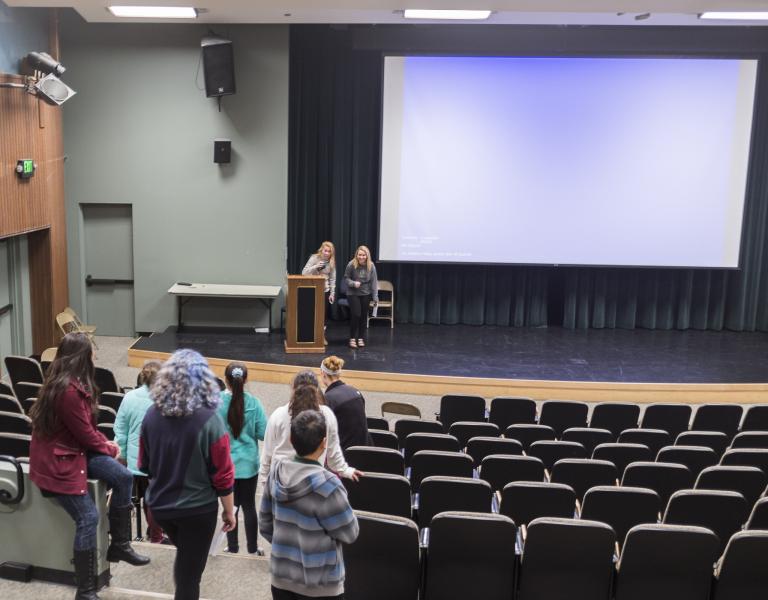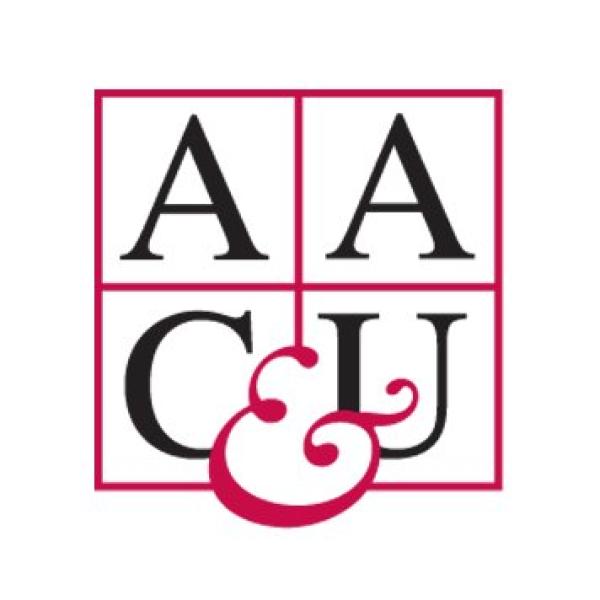Impact of Service-Learning
Community-engaged teaching has many positive impacts. Most, but not all, of the research focuses on service-learning. Learn more about the impacts on faculty, students, organizations, SSU, California, and beyond!
At SSU, faculty report that Service-learning can provide students with great opportunities to explore what it means to be civically engaged. According to the AAC&U service-learning is a high-impact practice. There has been much written over the past decade about the need for institutions of higher education to take the lead in promoting the values of citizenship, democracy, and civic engagement and this is reflected in SSU planning documents and efforts. SSU's and SSU Academic Affairs' Strategic Plans include foci on community engagement and diversity. Academic Affairs also founded and supports the Center for Community Engagement (CCE) and the SSU Academic Senate created an approved definition of service-learning.
Faculty have opportunities to publish and present in service-learning that may not be available in the disciplines. The CCE sends regular email updates with these opportunities. If you do not receive them and want to, please sign up.
Service-learning can be used as the connector between community engaged teaching, scholarship and University and community service and sometimes personal interests.
Research1 shows that faculty find that service-learning provides:
- Increased satisfaction with quality of student learning
- Increased commitment to research
- Motivation to increasingly integrate service-learning more deeply into more courses
- More lively class discussions and increased student participation
- Increased student retention of course material
- Increased student awareness of community and "real world" issues
- Increase in innovative approaches to classroom instruction
- Increased opportunities for research and publication
- Increase in faculty awareness of community issues
1References available in the CCE Resource Library. Please contact us to arrange for a viewing.
Eyler, Janet, Dwight Giles, Christine M. Stenson and Charlene J. Gray (2001). At A Glance: What We Know about the Effects of Service-Learning on College Students, Faculty, Institutions, and Communities, 1993-2000, Third Edition. Nashville: Vanderbilt University.
Fleischauer, J.P. & Fleischauer, J.F. (1994). College credit for community service: A "win-win" situation. Journal of Experiential Education, 17 (3), 41-44.
Kendall, J. C. and Associates (1990). Combining service and learning: A resource book for community and public service, volume 1. Raleigh, NC: National Society for Experiential Education.
Hollander, Elizabeth, John Saltmarsh, and Edward Zlotkowski (2002). “Indicators of Engagement,” in Simon, L.A., Kenny, M., Brabeck, K., & Lerner, R.M., eds. Learning to Serve: Promoting Civil Society Through Service-Learning. Norwell. MA: Kluwer Academic Publishers.
Goals for students in service-learning classes may include:
- Students have the opportunity to do what they are learning in class through experiential education
- Students have a deeper understanding of themselves and their involvement in the community
- Students are more aware of issues in the community and develop a sense of responsibility to address those issues
- Students are exposed to diverse communities, therefore dispelling misconceptions
- Students have a shared experience and the opportunity to develop classroom cohesiveness
- Students develop civic responsibility and plan for future involvement
Research has shown that service-learning impacts students:
- Learning Outcomes
- Increases academic learning
- Increases the ability to apply what they've learned in the real world
- Some studies show a positive impact and some show no impact on grades and GPA
- Increases critical thinking and problem analysis skills
- Some studies show a positive impact, and some show no impact on cognitive moral development
- Personal Outcomes
- Increases personal efficacy
- Increases understanding of identity
- Supports spiritual growth
- Supports moral development
- Supports interpersonal development such as teamwork, leadership, and communication skills
- Social Outcomes
- Reduces or supports stereotyping
- Facilitates cultural and racial understanding
- Increases social responsibility, activism and citizenship skills
- Increases commitment to service
- Service in college is associated with involvement in service after graduation
- Career Development
- Relationship with institution
- Stronger faculty relationships.
- Improves student satisfaction with college
- Increases graduation rates
- Impact of service-learning classes with a political focus
- Both students with an interest in politics and those without experience significant gains in just about every dimension of every civic learning
- Students with little prior interest in the political process have larger and more consistent gains in civic learning
- No impact on political ideology
- No impact on political party affiliation2
1From At a Glance: What We Know About the Effects of Service-Learning on College Students, Faculty, Institutions and Communities. Janet S. Eyler, Dwight E. Giles, Jr., Christine M. Stenson, and Charlene J. Gray. Contact the CCE to request a viewing.
2The Place of Political Learning in College Anne Colby. Spring/Summer 2008 Peer Review. Contact the CCE for a hard copy of the entire Peer Review issue.
Contact the CCE for a hard copy of the entire Peer Review issue.
According to the 2009 APG Consulting study Non-Profit Partners' Perceptions: SSU's Center for Community Engagement, SSU students and community partners each gain 50% in the service-learning partnership.
National research shows that community organizations report that service-learning:
- Increases their satisfaction with student volunteerism
- Provides useful service to communities
- Enhances university relations
- Provides access to university resources
- Provides positive relationship opportunities with the university
- Builds awareness of community issues, agencies and constituents
- Provides opportunities to contribute to the educational process
- Provides affordable access to professional development
- Provides short- and long-term solutions to pressing community needs
- Provides opportunities to have an impact on student cultural understanding by providing community voice
References are available in the CCE Resource Library. Please contact us to arrange a viewing.
Eyler, Janet, Dwight Giles, Christine M. Stenson and Charlene J. Gray (2001). At A Glance: What We Know about the Effects of Service-Learning on College Students, Faculty, Institutions, and Communities, 1993-2000, Third Edition. Nashville: Vanderbilt University.
Fleischauer, J.P. & Fleischauer, J.F. (1994). College credit for community service: A “win-win” situation. Journal of Experiential Education, 17 (3), 41-44.
Kendall, J. C. and Associates (1990). Combining service and learning: A resource book for community and public service, volume 1. Raleigh, NC: National Society for Experiential Education.
Hollander, Elizabeth, John Saltmarsh, and Edward Zlotkowski (2002). “Indicators of Engagement,” in Simon, L.A., Kenny, M., Brabeck, K., & Lerner, R.M., eds. Learning to Serve: Promoting Civil Society Through Service-Learning. Norwell. MA: Kluwer Academic Publishers.
Service-learning can be a tool to address Community Engagement, Diversity and/or Sustainability Strategic Goals from the SSU and Academic Affairs Strategic Plans.
Faculty have opportunities to publish and present in service-learning that may not be available in the disciplines. The CCE sends regular email updates with these opportunities. If you do not receive them and want to, please sign up here.
Research shows that service-learning impacts institutions by:
- Strengthening community relations
- Improving student satisfaction with college
- Increasing graduation rates—learn more about this
At a Glance: What We Know About the Effects of Service-Learning on College Students, Faculty, Institutions and Communities. Janet S. Eyler, Dwight E. Giles, Jr., Christine M. Stenson, and Charlene J. Gray. Contact the CCE to request a viewing.
Research shows that service-learning impacts society as a whole:
- By increasing college graduation rates—more from AACU
- By increasing voting and civic participation—more in How Young People Develop Long-Lasting Habits of Civic Engagement: A Conversation on Building a Research Agenda. Contact us to view this.
- By increasing student interest in public service—more in Where's the Learning in Service-Learning? Request an opportunity to review from the CCE library.
- By providing the nonprofit sector with college-educated staff—more in Comparing the Effects of Community Service and Service-Learning. Request an opportunity to review from the CCE library



